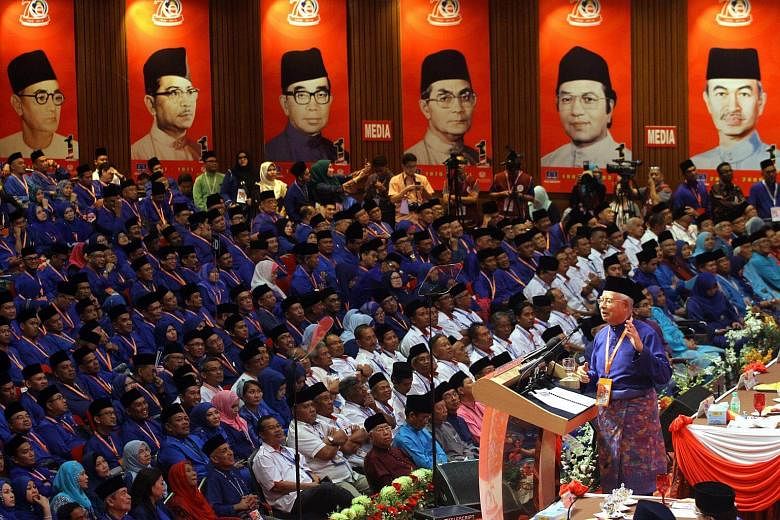Lim Sue Goan
PETALING JAYA (SIN CHEW DAILY/ ASIA NEWS NETWORK) - Prime minister Datuk Seri Najib Tun Razak has appointed the MP for Johor Bahru Shahrir Abdul Samad as the new chairman of the Federal Land Development Authority (Felda), operator of some of the world's biggest palm oil plantations in the country, replacing Mohd Isa Abdul Samad.
Since he won with a thumping victory in the Bagan Pinang state assembly by-election in Negeri Sembilan in October 2009, Mohd Isa has been rewarded handsomely, although the way he managed Felda has come under widespread criticism.
CIMB group chairman Nazir Razak has lately urged Felda to clarify on its purchase of 37 per cent of Indonesia's PT Eagle High Plantations at 173 per cent premium.
It was Felda's main listed unit, Felda Global Ventures Holdings (FGV) which first proposed the acquisition, but was later taken over by Felda after the move came under heavy public query. Acquisition of Eagle High's shares at 173 per cent premium despite its losses and tumbling share prices has put the ruling Umno, into the limelight again for mismanagement.
Lest we forget, there are some 112,635 Felda settlers across the country, and they and their family members are staunch supporters of Umno. If even these supporters are no more with the party, the Barisan Nasional (BN) coalition, will be in real trouble.
As such, Shahrir has been tasked with the mission of putting out the fire in hope of revitalising Felda in 101 days.
The Felda incident once again underscores Najib's strategy of rewarding his political loyalists.
While such a move will consolidate his support within the party, it does little to enhance the management of government departments and government-linked-companies (GLCs) as the appointees are not professionals.
This is not the first time Felda and FGV have come under public criticism, but Umno could hardly be bothered as the party's leaders are only concerned about their own survival. This also explains why we have seen so many irregularities in our government departments.
For instance, the home ministry has announced that employers will have to bear the Employer Mandatory Commitment (EMC) for their foreign workers beginning this year, but it was after some 159 business associations voiced their objection that the cabinet would begin to discuss and clarify on the EMC system. (Under the "commitment", employers are accountable for their workers until their return to their respective home countries).
By right, the ministry should have held a dialogue with the business associations before submitting the proposal to the cabinet for approval.
As if that is not enough, Sarawak has opted not to implement the EMC, adding further to the confusion.
Many have said Umno's collaboration with Parti Islam Se Malaysia (PAS) and the disunity among opposition parties should give the ruling coalition a strong advantage to consolidate its hold of the federal administration. But it now appears that Umno itself is in deep water.
Umno has attempted to use Red Shirts leader Jamal Yunos to counter Bersih 2.0 and the Pakatan Harapan (formerly Pakatan Rakyat), but such a move has also brought down the political standard of the ruling party. Umno's insistence to work with PAS despite objection from other BN component parties has further alienated itself from urban voters.
While Umno leaders appear to be in a relatively comfortable position, unscathed by the 1MDB and RM2.6 billion (S$830 million) scandals, they still have to watch out for the sliding economy.
If the ringgit falls further, and the EMC is eventually transferred to the consumers, even the erstwhile rural strongholds will be significantly weakened.
As such, Umno leaders have been trying very hard to paint a rosy picture of the national economy in hope of boosting the fast waning confidence.
After the exodus of Western funds, Chinese businesses have come in in a big way to fill the vacuum, including smartphone maker Huawei. The economy will be revitalised if proper planning is in place. But unfortunately Umno has overlooked this just to secure its own survival.
PAS has decided to stage a massive rally in support of Syariah Court amendments better known as RUU355 at the historic Dataran Merdeka on February 18, eyeing 300,000 participants.
In the meantime, PM Najib announced in the Umno general assembly last year that the government would take over PAS president Datuk Seri Abdul Hadi Awang's private bill, which seeks to mete out harsher punishments for Syariah offences. Against such a backdrop, it is unlikely the government will block next month's rally and will instead lend its full support.
But, the larger the crowd at Dataran, the more is the pressure upon Umno's shoulders. It will find itself unable to quit half way, making it all the easier for PAS to put through its hudud agenda.
Umno is willing to be led by the nose by PAS to keep its leaders in power. But the biggest crisis will come from a disintegrated BN and our severely undermined secular system.
Weirdly, despite all the uncertainties, Najib hinted during the first cabinet meeting this year that 2017 is going to be an "interesting year".
What's so interesting about 2017? The political game? Hope the PM will enlighten us.
Sin Chew Daily is a member of The Straits Times media partner Asia News Network, an alliance of 22 media entities.

